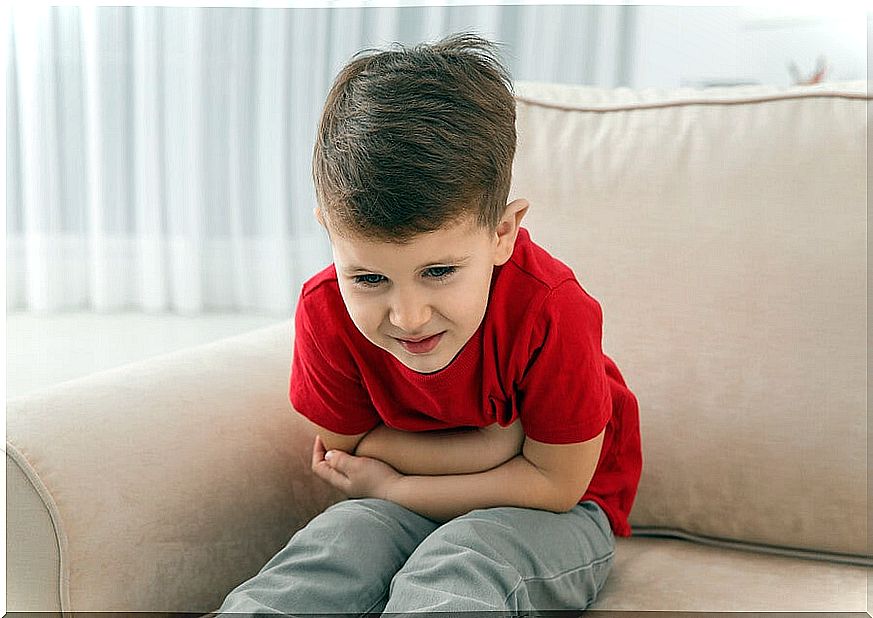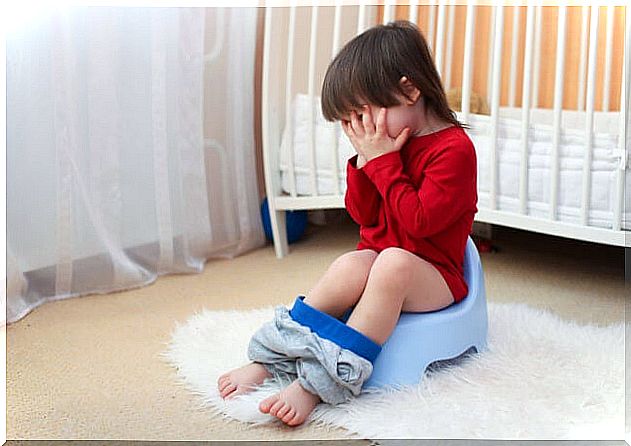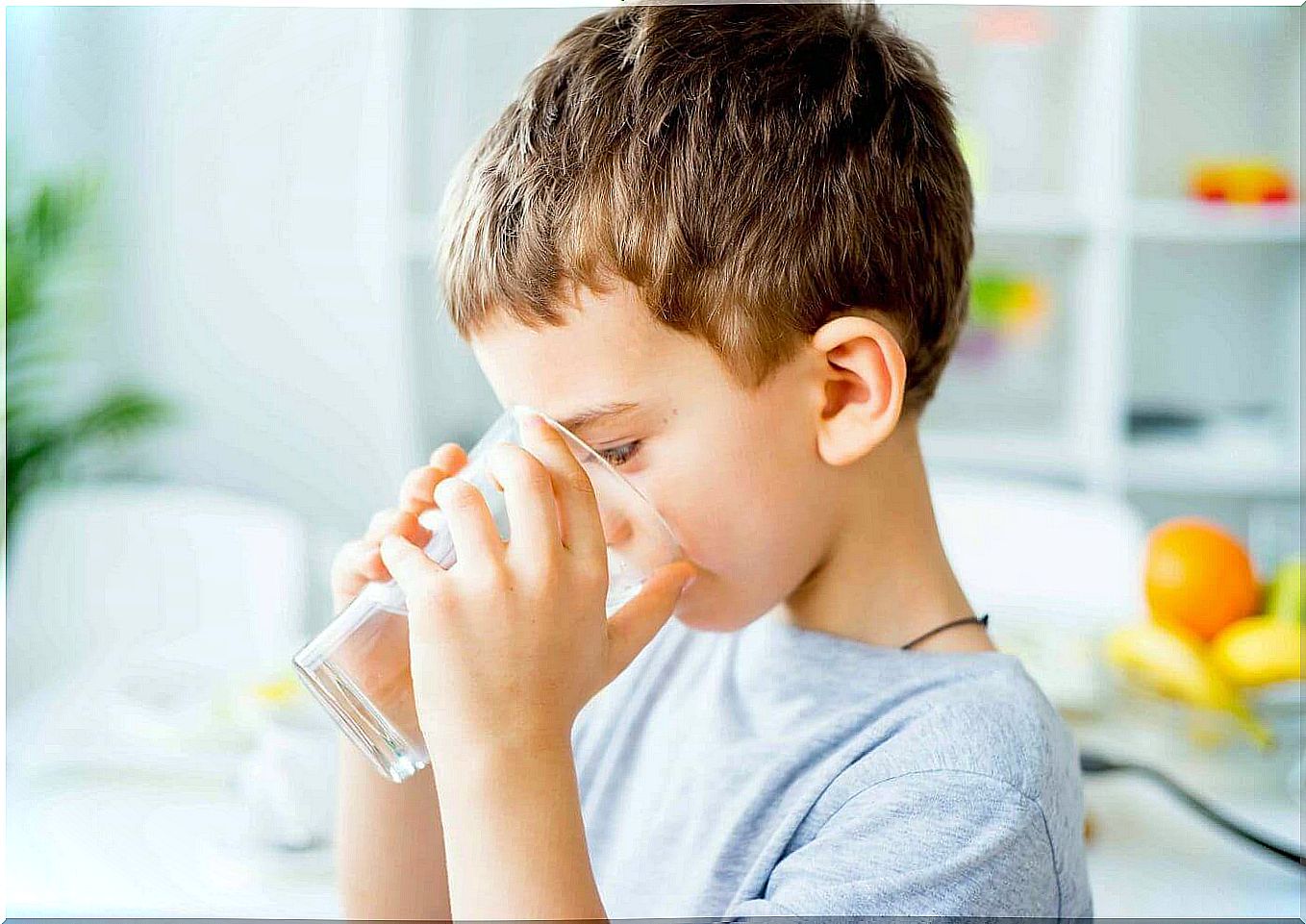Prevent Frequent Vomiting In Young Children
If your child vomits frequently, keeping him hydrated is a priority. To do this, you must always follow the pediatrician’s instructions.

Vomiting is not unusual in young children. Indeed, it is normal for them to have gastroenteritis at some point, for example, and for vomiting to appear, which will cause discomfort and concern parents. So, do you know how to prevent frequent vomiting in children and babies? In the following lines we explain what vomiting is, what it can be caused by and how to deal with it.
Vomiting
First of all, you have to differentiate between vomiting and regurgitation. Thus, while vomiting is the return through the mouth of food ingested involuntarily and with effort, regurgitation occurs when, simply, the infant or baby has fed quickly, has swallowed air and effortlessly returns the food through the mouth .
For this reason, it is quite difficult to distinguish between vomiting and regurgitation. In any case, vomiting can occur at any age, while regurgitation is typical of infants and babies.
Generally speaking, vomiting is arguably beneficial. It is a way of eliminating that food that has not sat well or that at that moment is harmful. However, if the proper measures are not taken, it can lead to serious problems, such as dehydration.
Causes of vomiting in children

As for the causes, these will depend on the age of the child. However, vomiting in children usually has two main causes:
- Gastroenteritis : an intestinal virus can cause diarrhea and vomiting.
- Gastroesophageal reflux : it occurs when the baby’s sphincter, still in the maturing process, does not relax and the transit of food becomes complicated and causes reflux and vomiting, as this article published in the journal Iatreia points out . In addition, it usually lasts more than 12 months.
Other less common causes, as indicated by this information from the Spanish Association of Pediatrics, can be:
- Food intolerances or allergies, such as cow’s milk protein.
- Metabolic disorders
- Intussusception.
- Others.
For all these reasons, it is essential to go to the pediatrician to be able to identify the causes of vomiting and treat them as soon as possible.
Warning signs
Although vomiting can be something specific and happen as if nothing, there are certain symptoms that must be taken into account. Thus, in case they manifest themselves, the child must be taken to the doctor.
- Vomiting arises after a blow to the head.
- There is blood in the vomit (brown color).
- The child vomits for a long time.
- Lethargy or apathy. However, some babies may show fussiness and distress.
- Abdominal pain and bloating
- Bloody stools.
- Green or yellowish vomiting.
- Fever.
Treatment

Keeping the child hydrated or rehydrating is the first measure to take if the child vomits, as this study published in the Annals of Continuing Pediatrics points out . To do this, following the pediatrician’s instructions according to age, the child may be offered an electrolyte oral solution or a liquid diet until he recovers. In any case, they should be administered little by little, to promote tolerance.
At this point, it is important to remember not to force your little one to eat. On the contrary, it is better to wait until you are hungry. Thus, after 8 hours without vomiting, you can start to introduce foods typical of a soft diet (broths, soups, bread), if you are older than one year, or breastfeeding.
Prevention of frequent vomiting in children
In order to prevent vomiting, it is important to prevent all the possible causes that can generate them. Therefore, it is practically impossible. However, in cases of gastroesophageal reflux, it is advisable to take into account some actions in order to avoid reflux or vomiting.
- Burp the little one. In this way, gases that can later cause regurgitation or vomiting will be eliminated.
- Change the mother’s diet. If you are breastfeeding, it is useful to know that some women have found that eliminating certain foods from their diet tends to spit up and vomit less.
- If the baby takes formula, it is advisable to consult with the pediatrician in order to introduce a change.
- Feed the little one in a position that facilitates the movement of the food downwards (vertical position) and, after doing so, do not swing or move it too much.
- Feed more slowly. Especially in cases where the little one is bottle-fed, check that the nipples are adequate. Indeed, the little one may be feeding too fast.
- On the other hand, if you are breastfeeding, it is better to feed your baby more often, but for less time. This will avoid having to deal with too much food and will make it easier to go down to the stomach with less.
Ultimately, vomiting is not unusual in young children. However, you must be alert to detect if there are warning signs that may indicate complications or major problems.
On the other hand, do not forget that keeping your little one hydrated is a priority if they are vomiting. To do this, consult your pediatrician and always follow their instructions.









